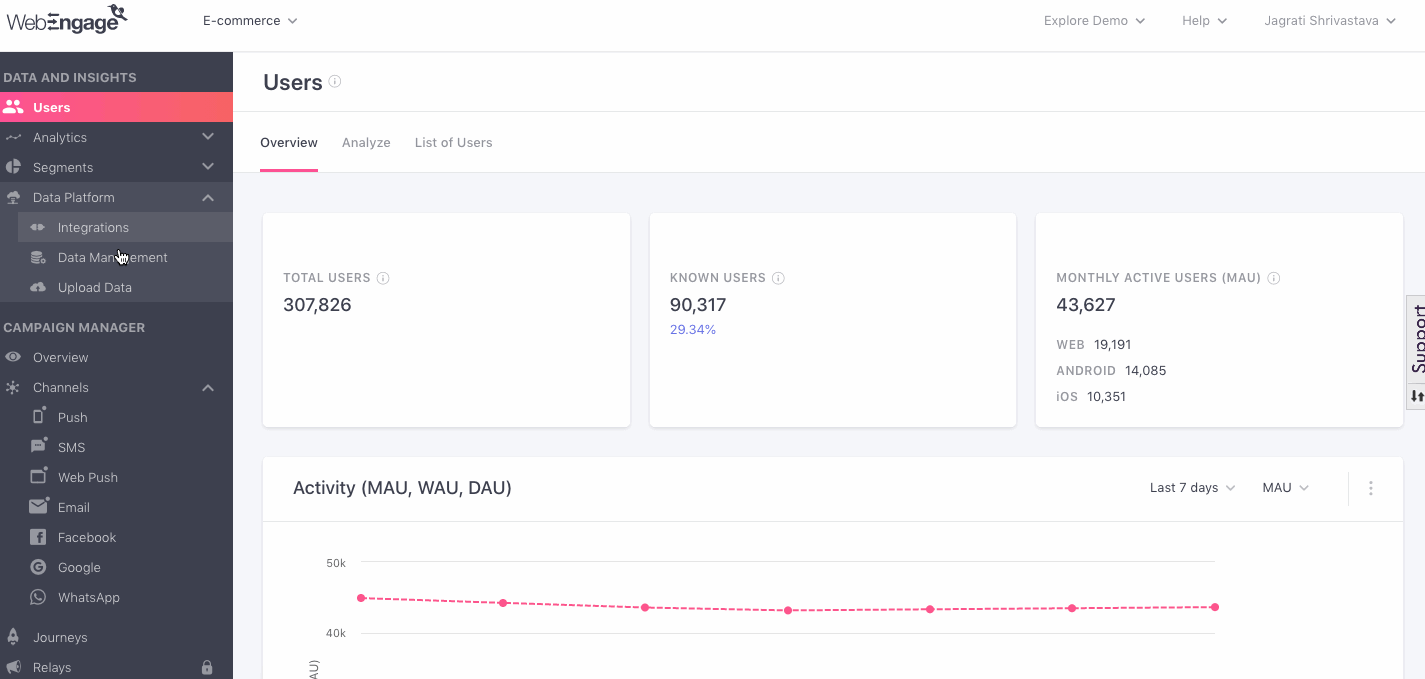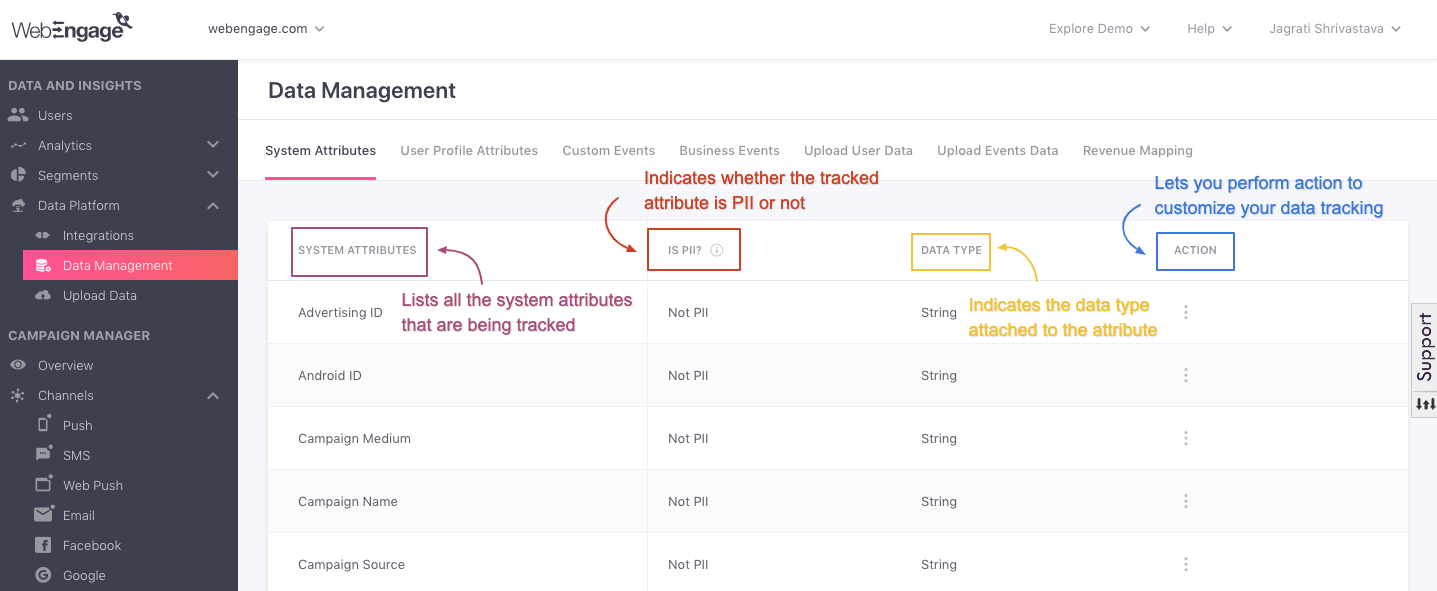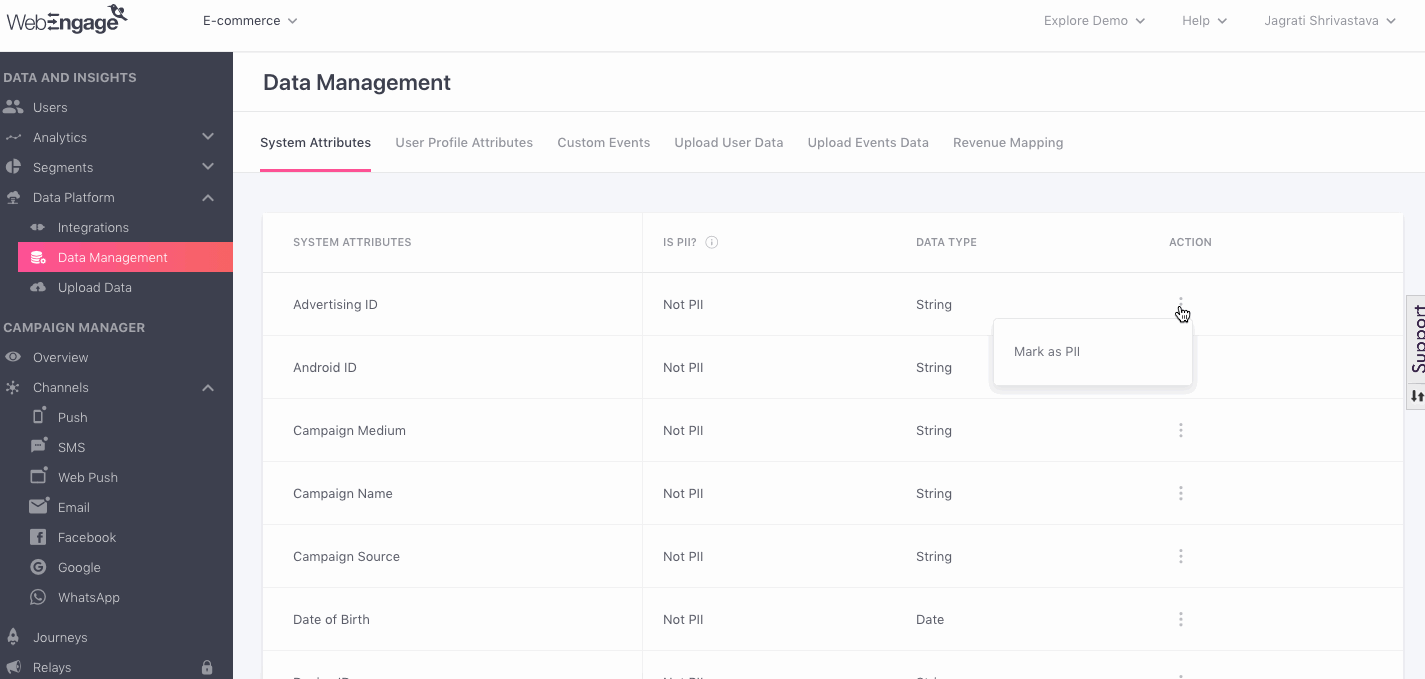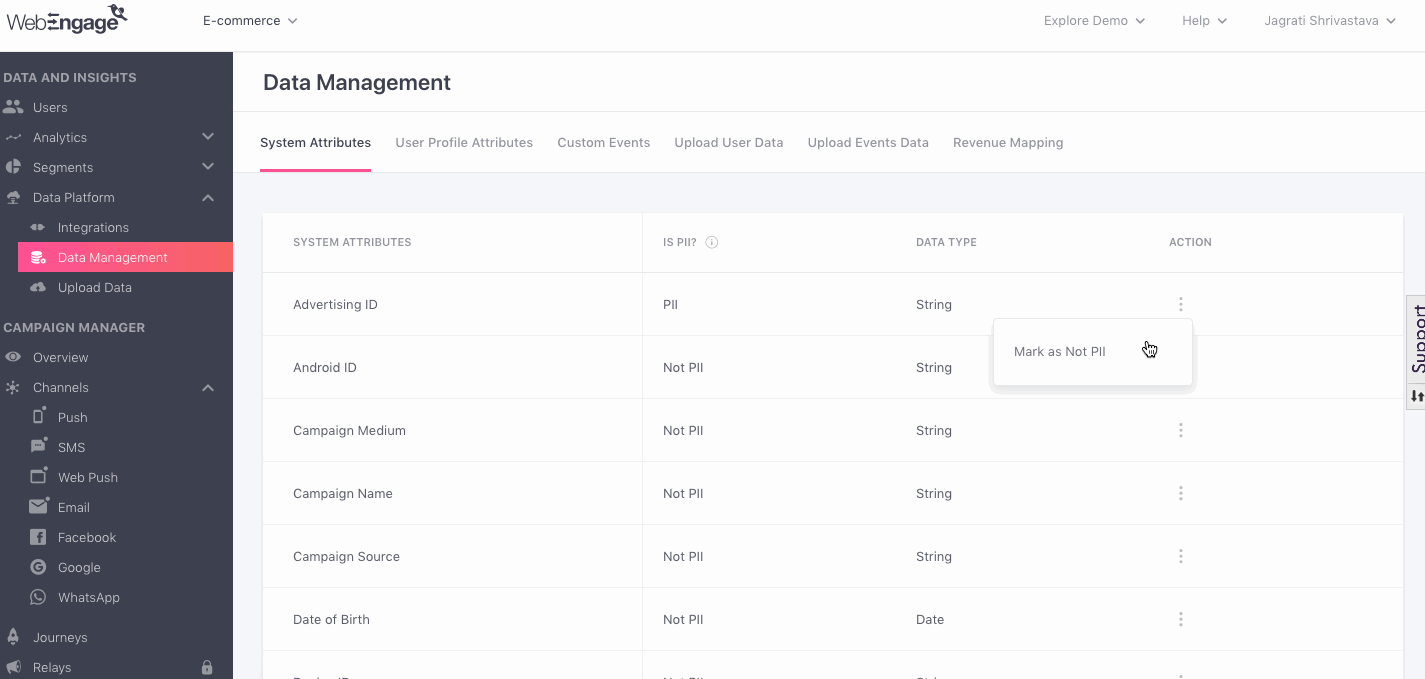System Attributes
For successful marketing campaigns, organizations should track certain attributes of the user. System attributes are the minute details that the system or WebEngage automatically gleans for all the users who interact with your app and website. Generic details like a user’s gender, date of birth and so on are called system attributes.
WebEngage has a comprehensive set of generic attributes which can help you understand all the events performed by your users. Here's a list of all the system attributes gleaned by us. This means you don’t need to worry about tracking all these data that are effective and impactful.
How to Access
As shown below, you can access this section through Data Platform > Data Management > System Attributes in the main navigation panel of your dashboard.
The gif below shows you the steps for accessing System Attributes:

Click to enlarge
Overview
Here you will find key details for each System Attribute tracked from all your sources - apps, website, REST API, third-party platforms, and manual data uploads.

Click to enlarge
Please NoteSystem Attributes are important and are tracked automatically, marketers will not be able to stop tracking the system attributes or change the data types as they are predefined.
System Atrtibutes
Lists all the custom attributes defined for your users. These enable you to understand user personas and devise highly targeted, personalized communication strategies.
Personally Identified Information (PII)
Understanding the concern over user data security, you have the choice to mask the attributes across the dashboard. You can do this by marking crucial data points as PII (as highlighted above).
How marking PII Helps Secure User Data
PII data is stored in an encrypted format. Our system incorporates a proprietary encryption algorithm that utilizes individual keys for each client, providing robust security measures.
Only account admins who have permission to view PII will be able to see and download actual values tracked against the marked system attribute. Values will remain hidden for all other admins.
Don't worry; this doesn't affect user analysis, segmentation, and campaign personalization in any way!
Use Case: Marking Name & Email Address as PIILet's take the example of an ed-tech website that tracks the user's personal details through the First Name, Last Name, and Email Address. These are crucial business insights, which if leaked, can give your competitors insights into your users personal details and growth strategy.
With PII masking, you can ensure that such situations remain a distant nightmare!
PII Masking
To mark an attribute PII or Not PII, simply click on the corresponding three dots under the Action column and select Mark as PII or Mark as Not PII to complete the process.
Please NoteIf an attribute has been marked PII, only those team members who have access can view the attribute marked PII. Kindly get in touch with your manager to get access to view the attribute that as been marked PII.
Let's discuss the process with a use case:
Use Case: Marking a System Attribute as PIILet's say we want to mark
Advertising IDfrom the list of System Attributes as PII.After the
Advertising IDhas been marked as PII, it will be masked on the dashboard, and only the members with access will be able to see it.
As shown below, you can hide the value of an attribute across your dashboard and reports by selecting Mark as PII from the Actions menu.(How It Works)

Click to enlarge
You can unmask a PII attribute anytime you like by selecting Mark as Not PII from the Actions menu (as shown below). Once unmarked, the attribute will be available to everyone on the dashboard.

Click to enlarge
Data Types
Data types refer to the format in which you are tracking the data points for a user against each System Attribute. At WebEngage, the attributes have been passed the following formats:
-
String: Strings are a set of characters: alphabets, digits, blank spaces, punctuation marks, etc.
-
Number: The integer data types are Numeric values.
Please feel free to drop in a few lines at [email protected] if you have any further queries. We're always just an email away!
Updated 1 day ago